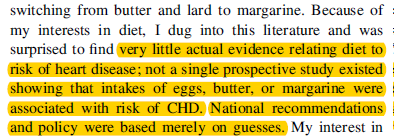Dear tweeples, have you ever considered where the idea that "most health outcomes are controllable" came from? Not pharma. Thread.
Real culprit? You guessed it (it's my thread, after all): The Dietary Guidelines for Americans.
Real culprit? You guessed it (it's my thread, after all): The Dietary Guidelines for Americans.
https://twitter.com/Rd2wellness/status/1163804837915570176
The Dietary Guidelines for Americans (DGA, 1980) were, in part, a response to the fact that the medical-pharma enterprise COULD NOT reverse/prevent chronic disease.
Other things that were a part of the rise of healthism that the DGA reinforces & perpetuates:
Other things that were a part of the rise of healthism that the DGA reinforces & perpetuates:
1) A need to reign in healthcare spending in the middle of a recession (rather than expand a movement toward national health insurance that began with Medicare/Medicaid.
2) A shift in public health thinking (see 1974 Lalonde report) that suggested--WITHOUT ANY PROOF--that individuals were largely responsible for preventing chronic diseases. The author of this report admits outright that there is no proof for this.
3) An unstable economy that left middle-class professionals struggling to separate themselves, somehow, from the "Unhealthy Other." Because the typical markers of middle class status (i.e. stuff) became harder to come by & not a reliable marker of educational/ social status
3, cont), middle class professionals relied upon the pursuit of health & a slender body (as an outward & visible sign of "health") as a way to distance themselves from burger-eating, soda-slurping working class folks.
4) The rise of nutritional epidemiology of chronic disease, a theoretically bereft, methodologically byzantine field that competently links dietary patterns to social class, reinforcing the tautology upon which the DGA is built: that "healthy" people eat a "healthy diet" and
4, cont) a "healthy" diet can be identified by observing what "healthy" people eat. That these "healthy" people were also the people (white, middle class professionals) with a high vested interest in displaying health behaviors & slender bodies is beside the point.
Which brings us to now. We see the persistence of this mythology even in purveyors of alternatives to mainstream nutrition, who nevertheless proselytize that a "healthy" diet/lifestyle (however one might define it) can *prevent* chronic disease despite the fact that ...
not only do we NOT have the answer to the question of how diet and chronic diseases are linked, it is not clear that we have the ability (currently, with research methodologies available to us now) TO answer this question.
Do we have some interesting preliminary research? Yes. Do we have some theories? Yes. Do we have definitive answers? No.
Do we have enough strong evidence to make general, population-level statements about what one should eat/not eat in order to prevent chronic disease, without concern for unintended adverse consequences? Not even close.
Have we even bothered to determine what that level of evidence should be? No. Further, have we considered the ethical implications of making such statements? No again.
And yet, the "most health outcomes are controllable" myth persists--and most powerfully so among the middle class professionals who needed it most then and, possibly, need it most now.
It seems only somewhat ironic that so many upwardly mobile middle class citizens have carved out their professional niches in health care areas that rely on the perpetuation of this myth.
So it goes.
So it goes.
• • •
Missing some Tweet in this thread? You can try to
force a refresh







